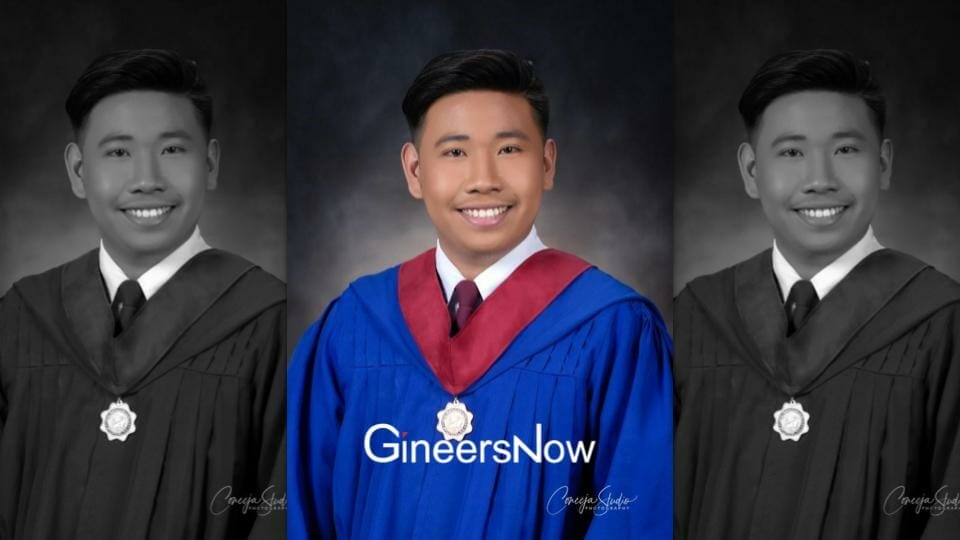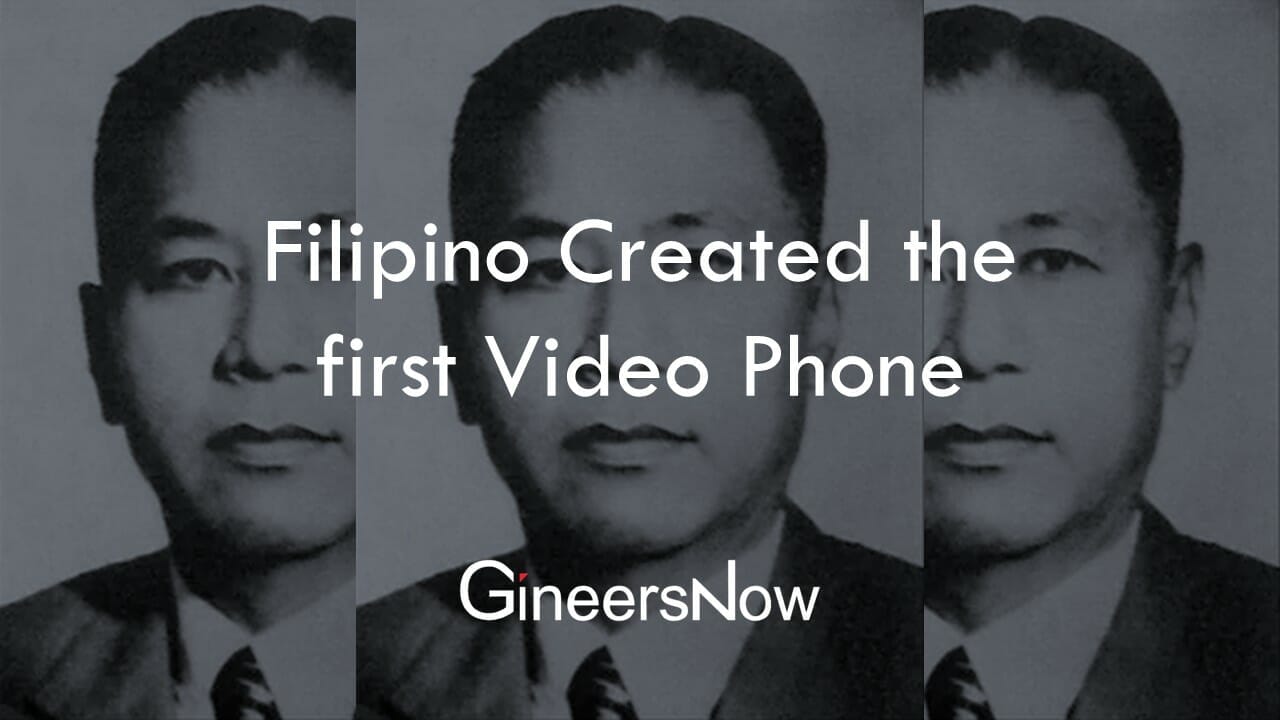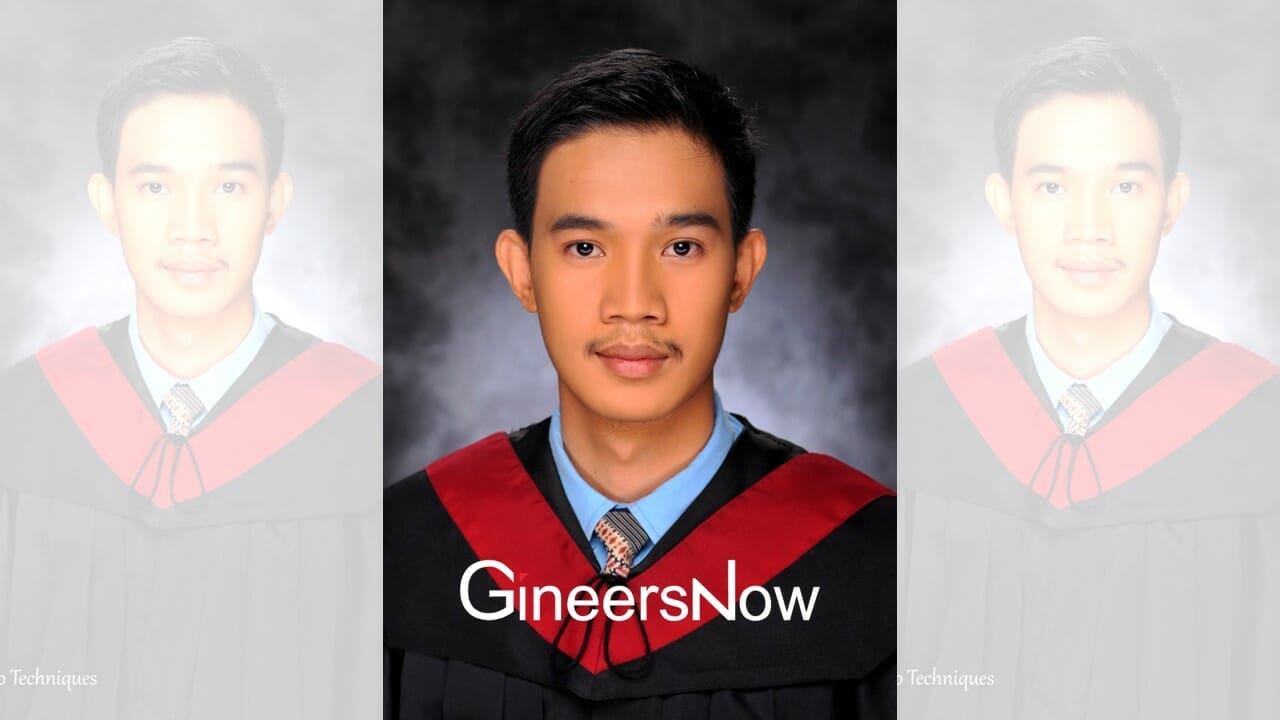An inspiring story of determination. From 75% final grade to civil engineering topnotcher. Students, it is not too late for you!
With a whopping rating of 91.55% and landing on the 10th spot on the Civil Engineering Licensure Exam.
One may assume that this topnotcher easily sailed through academics.
However, there’s more to him than meets the eye.
Engr. Christopher John Peralta De Vera, known to his friends as “Tope or Toper,” hails from Lamut, Ifugao.

Why is this an inspirational story?
- From Laumt Ifugao
- Ranked 10th
- Civil engineering
- Saint Mary’s University
- Father died, the sole provider of the family
- Mother, unemployed
- His caregiver aunt is supporting his school fees
- Eats “lugaw” (porrige) to survive

Before setting his foot towards college, he admits that civil engineering was not a course on which he had set his sight.
He was actually contemplating pursuing accountancy.
However, on the day that he enrolled at Saint Mary’s University, he paused and thought to himself about what he wanted to be ten years from then.
When he imagined his future self, it made him realize that engineering was really his calling.
So although Tope wanted to become an accountant at first, he ultimately decided to take up civil engineering.
But while he already had a dream course in mind, there were one other hurdle he had to go through – finances.

In his last year of high school, Tope’s dad passed away.
The brunt of losing his father only amplified the unfortunate financial situation his family was experiencing.
His mother takes care of the family and is unemployed.
The good thing is that his aunt, who works in the US as a caregiver, paid for his college tuition.
According to him, Tita Lydia continued to stay by his corner until he could accomplish his goals.
With his finances taken care of, Tope was ready to face college.

Just as he expected, the life of an engineering student wasn’t all rainbows and roses.
He aimed to be included on the Dean’s List during his first year.
But despite his earnest efforts, his grade didn’t make the cut.
He let go of his dream of becoming a dean’s lister and focused on passing his subjects.
But life really wanted to test Tope’s resilience.
He received a final grade of 75 in two other subjects!
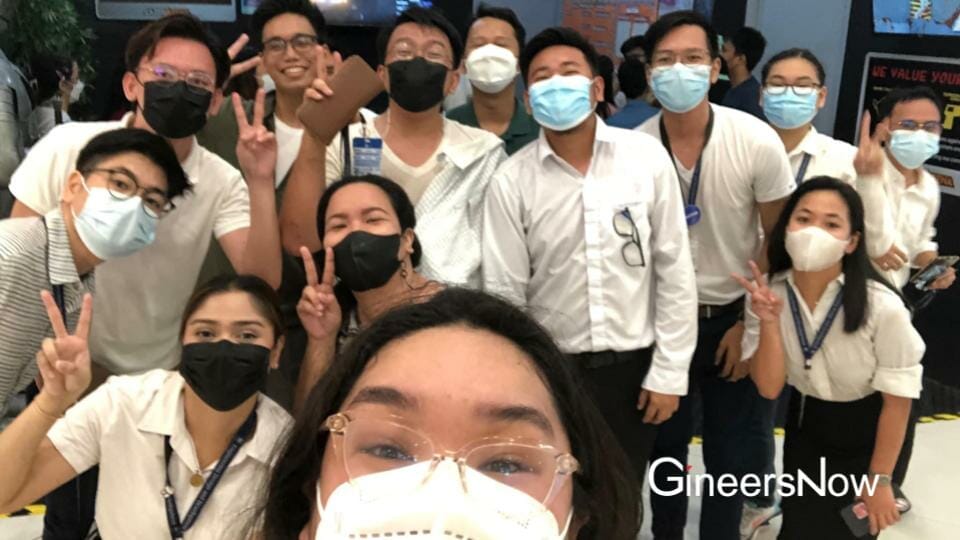
Admittedly, he recalls how he was bothered by seeing final grades of 75.
However, he used this experience as a motivating factor to push through, continue and see the bigger picture – passing, graduating on time, and being a full-fledged engineer.
And in June of 2020, he did just that.
He finally graduated and fulfilled the dream of his late dad to finish his studies.
Asked about a tip he could share with his aspiring engineers, Tope was quick to answer, “Enjoy!”
But challenges continue to hound him after graduation.

During his review, financial problems tested him again.
He didn’t have enough funds to get him through the days leading up to the board exam.
In fact, he frequently eats adobo with barely a little meat in it and saves it up for lunch and dinner.
There was even a time when the only thing that he could afford was porridge.
Despite these struggles, Tope braved through.
He wouldn’t let his growling stomach get in the way of him becoming a licensed engineer.

Unfortunately, things didn’t get better for him.
Three weeks before the exam, he fell ill.
He couldn’t pick up his notes to study, and the pressure of the nearing exam was making him sicker.
However, Tope knew that there was nothing else he could do but rest and relax his mind.
So that was exactly what he did.
When he finally recovered, he got right back to reviewing and catching up.

In the end, his efforts were rewarded, as on the day of the board exam, Tope found it pretty average.
He, however, was dismayed because plenty of terminologies were included.
But overall, he didn’t have a hard time answering the questions in all three subjects.
After the exam, anxiety took over.
Though hopeful, Tope was uncertain if he would top the exam, fearing that he might have missed something.
Or that the difficulty he experienced in the first subject will cause him to fail.

Then shouting and delight were all over their house that 1 am on May 12 as he found out that he had passed the exam.
Excitement, congratulatory messages, and prayers flooded his notifications.
But after 30 minutes, he and his family did not forget to pray.
After that fateful day, opportunities were aplenty for Tope.
Big companies contacted him two days after the release of the results.
Currently, he decided to rest for a while and enjoy his time with his family and friends in his hometown before he works full-time and does his part for the society.

Engineer Christopher John Peralta De Vera is an image of success.
Yet, he has always been more than that.
He is a living testament to life doing its wonders.
An image of steadfastness amid troubles.
Engineer De Vera is not just a man of success.
He is Tope, a dreamer who managed to get through it all.
To know more about Engr. Tope’s student life, board exam experience, and more read through his interview with GineersNow.

My Student Life
Why did you choose this course? Who or what was your inspiration?
Civil Engineering was actually NOT my first choice in college.
When I was in high school, I was planning to get a BS in Accountancy as my course.
I can’t remember exactly what was the turning point why I took Civil Engineering.
I only remember the moment when I was thinking and imagining what I would look like in the next 10 yrs, and in the end, I enrolled in Civil Engineering in college.
Maybe it’s God’s plan for me to take Civil Engineering.

What are your favorite subjects in your entire engineering study? How about least liked subjects?
Favorite subjects
I think my favorite subjects are the ones with laboratory-like Soil Mechanics, Materials Testing, Hydraulics, etc., because the laboratory is fun, hahaha.
All we do is sieve, weigh things, and then test materials.
Least favorite
My least favorite is probably the minor subjects that make me want to sleep, haha. It’s hard to stop the sleepiness, especially when you’re sitting in front.

Have you had any subject failures or disappointing academic performance, to the very least? How did you cope?
I think my first disappointment was when I was in 1st year, 1st semester.
I was aiming for the dean’s list at that time, but when I was given a grade with a line of 7, at that time I was so disappointed, and I said to myself, “Deans List?
Just let it go as long as I pass.” ( And I didn’t really become a deans lister throughout my college life hehe).
I just continued my studies as long as the goal was to pass and graduate on time.
Another one is that I got a 75 grade.

That was my first time getting a TRES, not exactly a failure but almost.
I wasn’t too disappointed because my goal was to pass.
I actually got a 75 grade in college twice.
It did bother me a little bit, but as long as it was a passing grade, it was okay.

What are your most difficult experiences during college life? What are your greatest struggles while in college?
I think the most difficult for me is in terms of finances.
My mother is unemployed, and my father is no longer here.
It’s good that I have a kind aunt, Aunt Lydia, who sent me to school.
I’m very thankful to her because she financed my entire college so that I could finish my course.
She never got tired and gave up on me and my studies.

I am so grateful to her.
Also, to one of my aunts, Mama Leoning, who also helped me back then.
My sisters and brothers also took turns in giving me an allowance.
I am thankful because I have a very supportive family.
A painful experience, but not in college.
Before I went to college (college started in June 2015), my father died in January 2015,
His last wish was for my brother and me to finish school, which happened, but he didn’t get to see it.

Any topnotcher study tips or tricks that you think others should emulate from you?
If there are tips that I would give to aspiring topnotchers or those who want to pass their subjects, it’s to read the formulas you write on your index cards or on your walls.
Read them every morning.
Don’t just memorize the formulas or the step-by-step process of a formula.
Familiarize it with the help of a concept base.
Understand the concept and master the basics.
Solve, solve, and solve.
The more that you solve, the more you’ll get to memorize formulas and understand concepts better.
Before, I used to solve 100-150 problems a day, provided that I didn’t have lectures.
If I do, then I can solve an average of 50 problems a day.

Don’t forget to rest.
Rest your mind and your body.
If possible, set a schedule where you can rest and review.
You can also set a rest day where you can meet with friends!
Finally, you should always pray.
The Almighty God is always listening.
For me, the most effective thing in the world is prayer.

What is the best engineering school advice that you can give to other students?
Enjoy!
Enjoy being an engineering student.
There’s a time to be serious, and there’s a time to enjoy break times.
If you’re struggling, it’s better to take a break.
Take care of your physical self and your mental health.
Moreover, enjoy the moments that you’re studying.
If I’m not mistaken, there’s a quote that says, “love your subject, and it will love you back.”

My Board Exam Experience
What were the greatest struggles that you experienced while preparing for the board exam? What did you do to overcome them?
During the review, I struggled financially.
I went to Manila with my friends, and there was a point when the only meal that we could afford to cook was porridge.
I also remember cooking adobo, but instead of having a lot of meat, it was replaced with potatoes.
We had to portion the meal and make sure it could last up to dinner.
But it’s all worth it because we all became engineers.

Three weeks before the board exams, I was also sick. I remember being bedridden for four days.
I was thinking of how I was wasting four days for review, but I just rested and then went immediately back to reviewing as soon as I was okay.
Lastly, I remember being overwhelmed with pressure and stress.
I was stressed over the number of reading materials I had to cover.
I was also pressured by the thought that I had to pass the exam so as not to put all the sacrifices to waste.
But with the help of my friends and family, the stress was reduced by at least a little bit.

Luckily, I have friends and my roomies in Manila.
We were able to destress each other even though we were all stressed in the review, and most of all, it was one of the things that made me feel lighter was praying.
I just pray.
Every Sunday, when I can’t go to church, I just play a hill song in the apartment.
I know that the Lord is just there guiding me, so that makes me feel better.
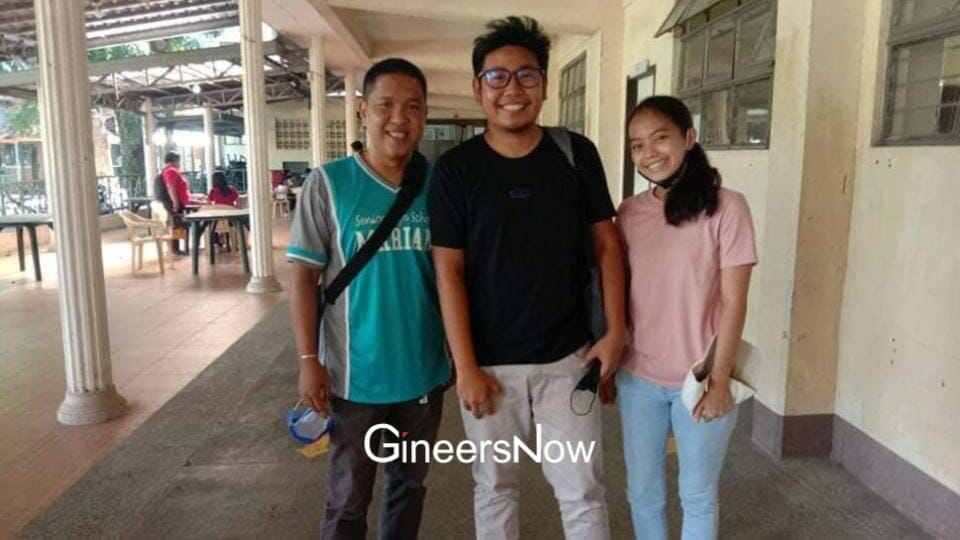
Did you enroll in a center for your review? Do you recommend doing so? Which one did you go to?
Yes, I enrolled in Mega Review and Tutorial Center.
Yes, I recommend enrolling in the review center because they really help you.
Their program will help guide you when you review.
I’m especially anxious to come back because of the review break, but they will help you with basic subjects, and you’ll learn techniques that you can use in the board exam.

How did you find the board exam? Easy, average, or difficult?
I was disappointed with the first subject (Applied Math) because I did not expect the test type to be mostly objective.
For me, I think the exams were average.
I even said to myself to bid goodbye to my topnotcher dreams.
I just pushed myself to answer all the remaining tests to the best of my ability.
The second one, which is Hydraulics and Geotech, is okay.
It’s actually the easiest of all subjects.

As for the third one, the Structural subject is also okay with me.
I didn’t struggle too much, nor did I find it easy.
What were your expectations after you took the board exam and before the results were out? Did you have a feeling that you would be at the top?
After the board exams, I was in a constant state of paranoia.
I asked myself whether I shaded my papers correctly or whether the letters I chose were correct.
I even thought that I would not be a topnotcher because of the frustration I experienced while answering the first test.
But I always prayed to be included in the top 10, and God did not disappoint.

What did you do the first minute you discovered you topped the board exam?
Around 1 AM on May 12, the result came out.
The first thing I looked for was the list of passers, and there, I saw my name.
I screamed and went to my mother and cried.
Maybe after about 2-3 minutes, a friend of mine chatted and said, “Congrats, Top 10.” At first, I didn’t believe it.
I was trying to find the list of topnochers, but I couldn’t open the PDF.
Then, an FB notification popped up on my phone. It was a post from one of my teachers in college, greeting me for making it to the Top 10.

I cried again and hugged my mom and my brother. I was still shaking because of the excitement.
It was already mixed.
Then after maybe 30mins, my family and I prayed and thanked the Lord.
Who do you owe your success to?
I owe this success to my family. They are the ones who guided me throughout this journey.
I owe it to my mother, my siblings, my aunts, and my cousins.
I also owe this to my father that despite him not being here, I always keep his wish in mind.
And I also owe this success to my father, who is now in the afterlife whose last wish is for us to finish.

What incentives did you get from your university and review center after your board exam success?
Right now, I haven’t heard about any incentives, but they say there will be some.
Share your most effective study habits.
The most effective study habit that worked for me was waking up early, familiarizing myself with the concept behind formulas, eating breakfast, and taking a rest whenever my body needed it.

Give five important tips for future board exam takers who aim to become topnotchers.
1. Always pray.
2. Solve and solve, master the basics, and understand the concepts.
3. If you want it, aim for it, and work for it.
4. It’s better to review with someone to discuss topics.
5. Take a moment to rest.

Family and Love Life
Describe your family, parents, siblings
My family is very supportive.
Even though we were struggling financially.
They were able to provide for me and still continued to support me until I became a full-fledged engineer.
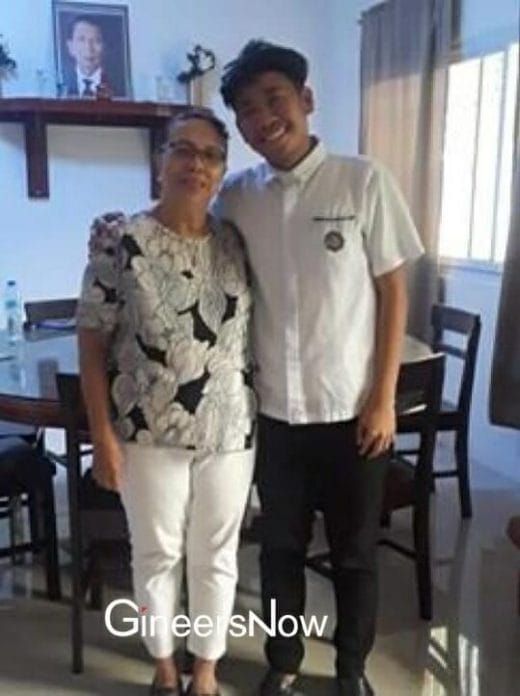
Did your parents encourage you to study engineering?
No, they did not.
It’s my own decision to pursue engineering.

Are you in a relationship? Or it’s complicated?
No, I’m not in a relationship.
The Future
Describe engineering in one word
Challenging.
Why is engineering important in our society?
Engineering is important because it helps build a society where people are safe and healthy.

Where do you see yourself ten years from now?
In the next ten years, I’ll be traveling around the world with my loved ones.
— End of Interview —
What is civil engineering?
Civil engineering is a branch of engineering that deals with the design, construction, and maintenance of the physical and natural built environment.
Filipino civil engineers are responsible for the infrastructure that supports our modern society, including roads, bridges, water supply and treatment systems, sewerage and drainage systems, airports, railways, and harbors. They may also be involved in environmental protection and remediation projects.
A civil engineer typically has a five-year bachelor’s degree in civil engineering. Many Filipino civil engineers also choose to pursue advanced degrees such as a master’s degree or PhD.

Why is civil engineering school hard?
School is hard in general, but civil engineering specifically is a challenge for many reasons. The first reason is that the material is difficult. Civil engineering deals with things like fluid mechanics and statics, which can be tough concepts to grasp.
In addition, there is a lot of material to cover in a short amount of time. Students have to memorize formulas and learn how to apply them to real-world problems.
Another reason why civil engineering school is hard is that it requires a lot of work outside of class. There are often long homework assignments and projects due, and students have to study for exams. This can be difficult to balance with other commitments, such as work or family obligations.
Finally, civil engineering school is hard because it’s very competitive. Many students are vying for top grades and internships, which can create a lot of pressure.

Typical subjects in a civil engineering school in the Philippines
For students looking to enter the field of civil engineering, they can expect to receive a well-rounded education that will touch on various aspects of the profession. Classwork for civil engineering students typically includes topics such as mathematics, statistics, physics, and computer science.
In addition, many programs also offer courses specific to civil engineering, such as mechanics, material science, and structural analysis.
With such a wide range of topics covered in a typical civil engineering program, students can expect to be prepared for a variety of careers once they graduate. Many graduates go on to work in traditional engineering roles, such as designing and constructing buildings or bridges.
Others use their skills in more non-traditional ways, such as working in city planning or environmental protection.

Life’s adversities will make you a strong engineering student
Adversity has a way of sneaking up on us when we least expect it. It can be something as small as a flat tire or as big as a job loss. Whatever the adversity may be, it has the potential to make us feel overwhelmed and helpless.
But what if we looked at adversity differently? What if, instead of seeing it as a negative force, we saw it as an opportunity to grow and become stronger?
When life throws you a curveball, it can be tempting to give up. But if you’re the type of person who is able to dust yourself off and keep going, you’re likely to find that adversity has made you a stronger person. Can you imagine this student preformance is from 75% final grade to civil engineering topnotcher? That is a spectacular bounce back story.
Adversity has a way of testing our mettle and revealing our true character. When we’re faced with challenges, we often find out just how resourceful and resilient we really are. We also learn more about ourselves – what we’re capable of and what really matters to us.

While it’s never easy to go through tough times, know that they will make you stronger in the end. Embrace the opportunity to grow and learn from whatever life throws your way.
Here are three reasons why adversity will make you a strong engineering student:
1. Adversity forces you to face your fears.
When faced with adversity, you are forced to come face to face with your fears. This can be a challenging but it is one that must be faced in order to overcome the adversity. Imagine From 75% final grade to civil engineering topnotcher, this is self redemption any engineering students.
By facing your fears, you will be able to see them for what they really are and learn to deal with them. This is an essential part of overcoming adversity and becoming stronger as a result.

2. Adversity builds character and resilience.
When faced with difficulties and hardships, some people crumble while others rise to the occasion. It has been said that adversity builds character and resilience.
This may be true for some, but not all. Some people are just not cut out for hardship. They lack the essential qualities that are required to overcome adversity.
Those who do have what it takes to overcome adversity usually share certain qualities. They are usually optimistic and have a positive outlook on life. They also have strong determination and willpower. They never give up and always find a way to overcome whatever obstacle is in their way.
Adversity does indeed build character and resilience in those who are able to overcome it. It teaches them valuable lessons and makes them stronger individuals. It is not easy, but it is definitely worth it in the end.

3. Adversity makes you appreciate the good times even more. Adversity forces you to face your fears.
When you go through tough times, it makes you appreciate the good times even more.
You realize what you’re capable of and how strong you are.
Adversity also forces you to face your fears. You learn to overcome them and become a better person because of it.
If your performance in school is similar to this story, from 75% final grade to civil engineering topnotcher, it will make you appreciate your blessings.
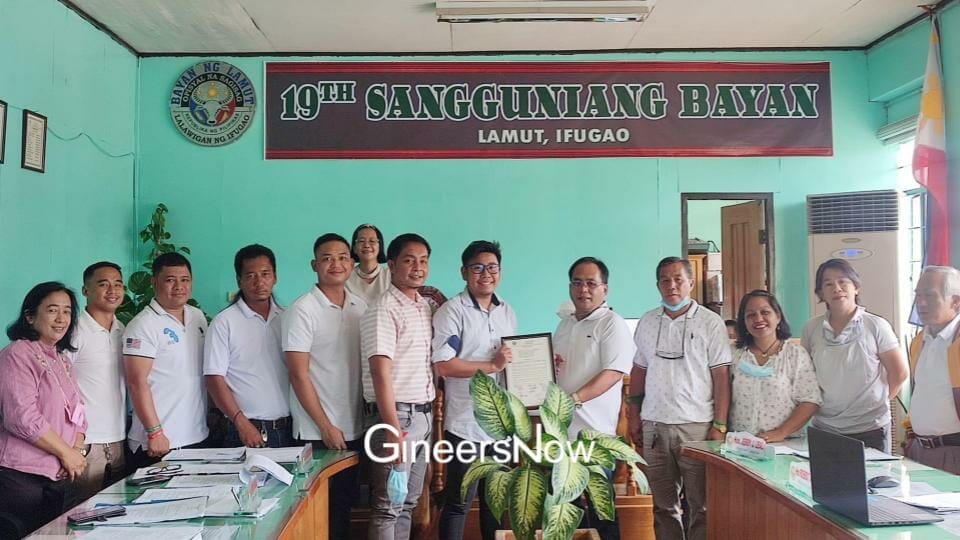
Why you should not give up on your dream to become an engineer?
There are many reasons why you should not give up on your dream to become a civil engineer.
The story of Engineer Christopher John Peralta De Vera is a classic example of determination and perseverance will bear fruits. From 75% final grade to civil engineering topnotcher, he was able to bounce back and ranked 10th on the PRC board exam.
If you have ever wanted to design and construct bridges, dams, roads, or buildings, then a career in civil engineering may be for you. Civil engineering is a challenging profession that requires not only a strong technical background but also good problem-solving and communication skills.

Here are reasons why you should not give up on your dream to become a civil engineer.
First, civil engineering is a highly respected profession that is essential to the function of society.
Second, Filipino civil engineers make a great salary and have excellent job security, especially when they go abroad.
Finally, becoming a civil engineer will allow you to use your creativity and problem-solving skills to make the world a better place.


